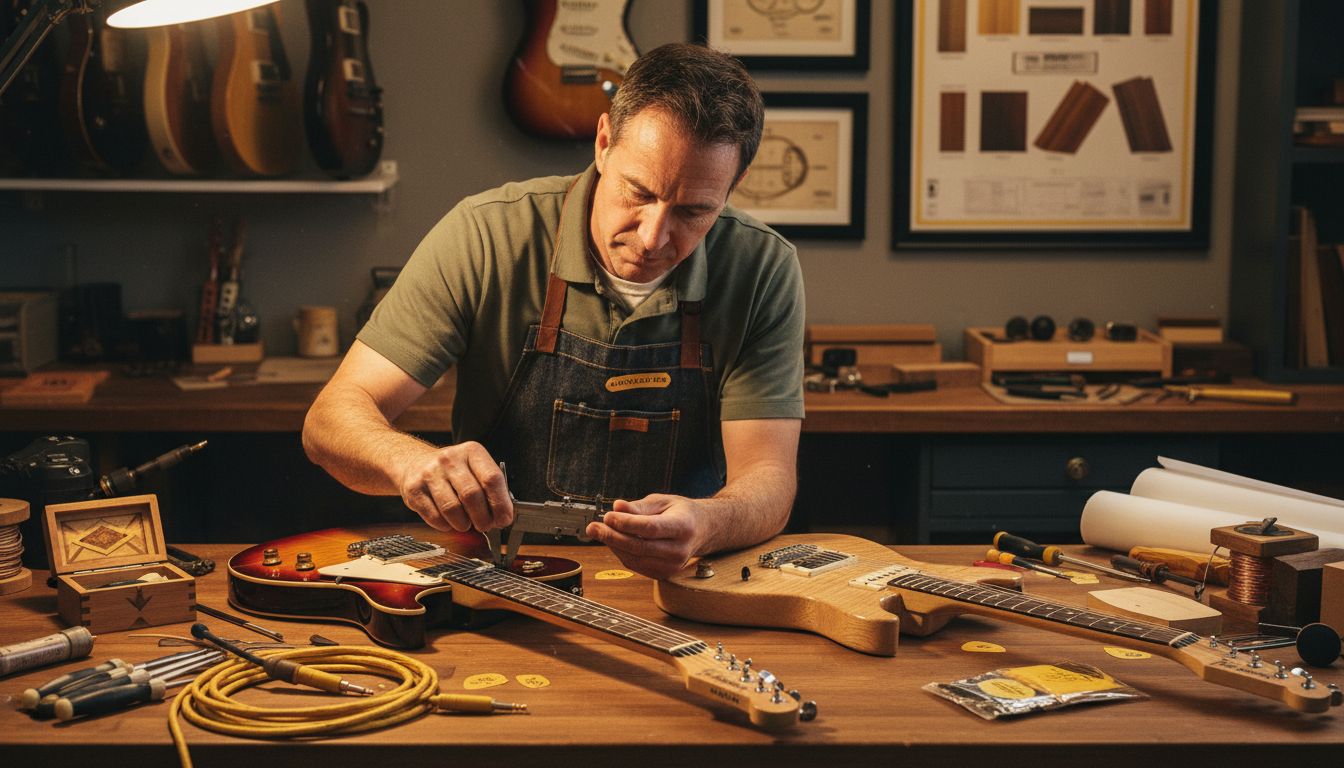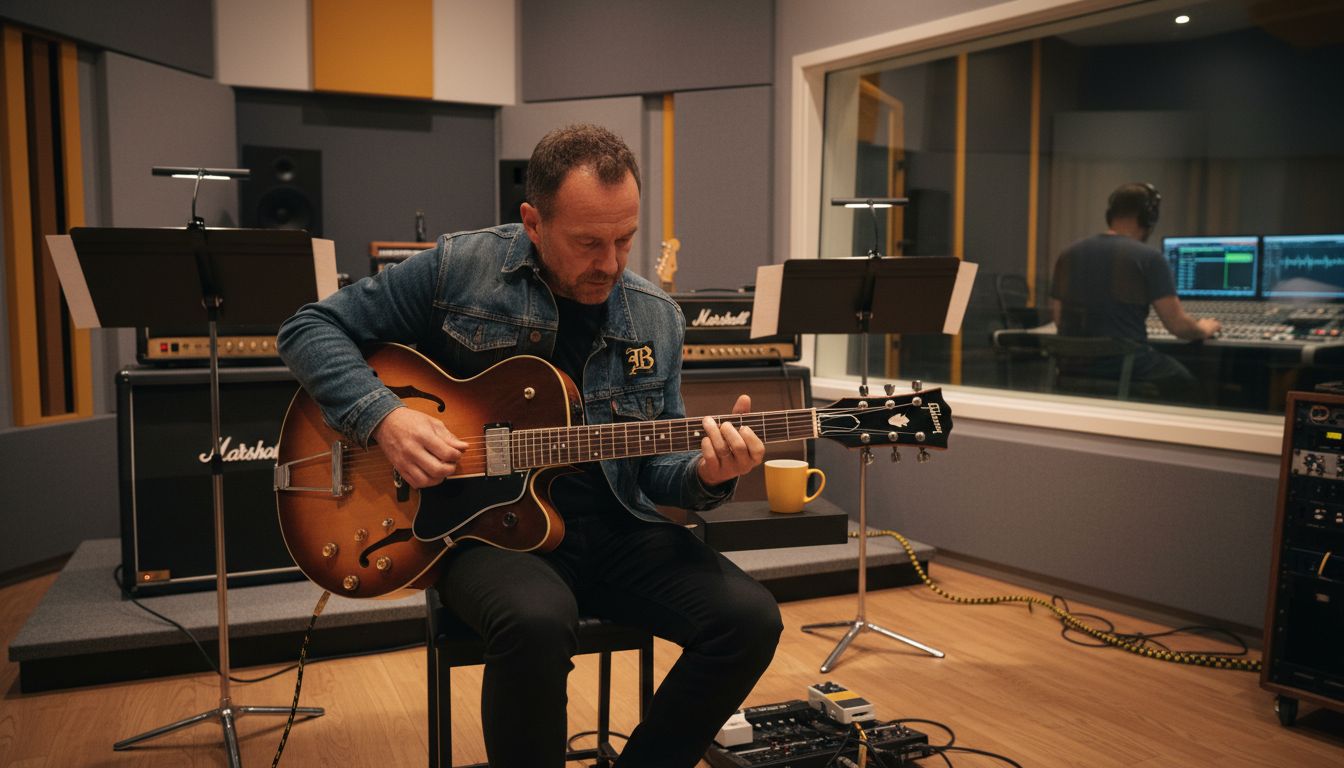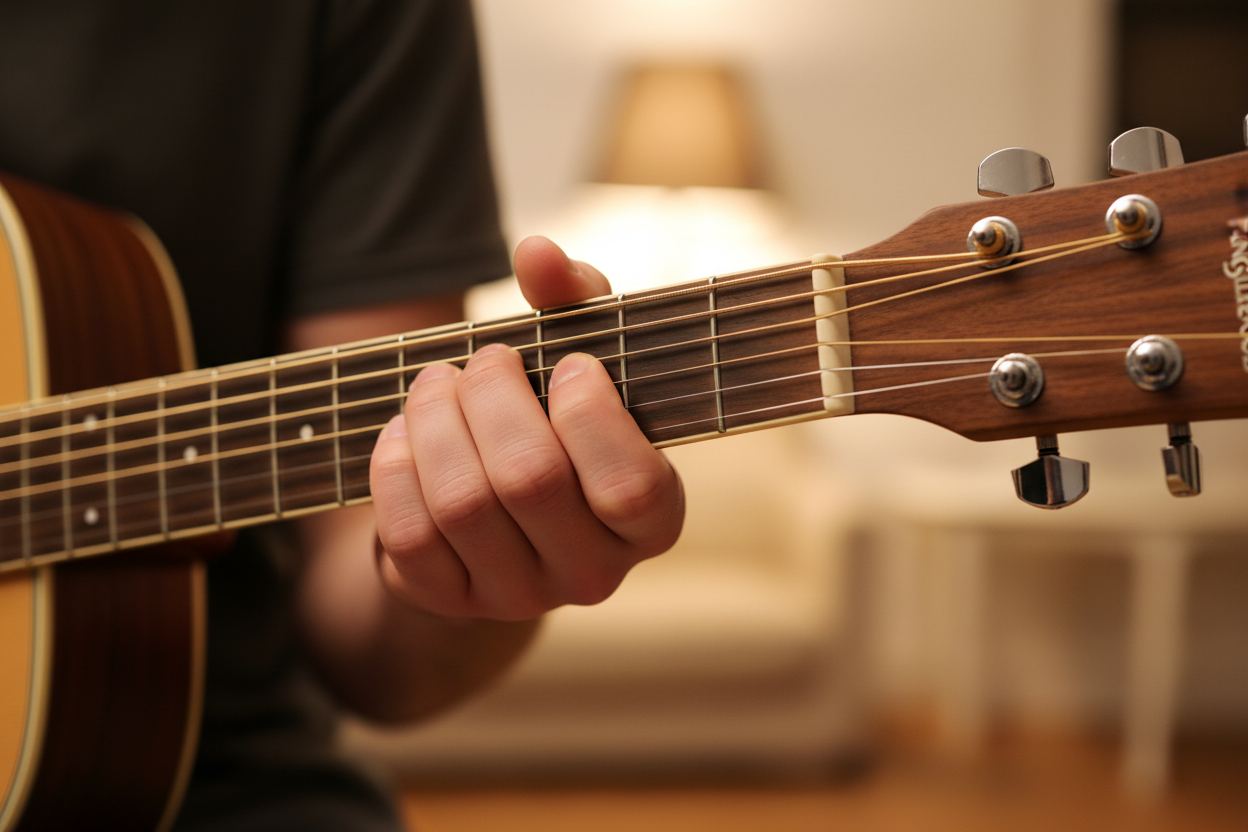Shopping for an electric guitar can be both fun and a bit daunting. With so many models and features on the market, it’s easy to get lost in the details. If you’re wondering how to pick an electric guitar that actually suits the way you play, you’re in the right place. Let’s walk through the process together, focusing on what matters most for your own musical journey.
Guide to Choose the Right Electric Guitar for Your Playing Style
1. Start With the Music You Want to Play
Before you look at specs or price tags, think about the sounds you enjoy and the music you want to create. Are you interested in classic rock, modern metal, smooth jazz, or something else entirely? Different types of electric guitars are designed with certain sounds in mind.
- For Rock and Blues: Models like the Fender Stratocaster, Telecaster, or Gibson Les Paul are known for their flexible sound and have shaped many classic records.
- For Metal and Hard Rock: Guitars with humbucker pickups and solid, sturdy bodies such as those from Ibanez, ESP, or Schecter (Schecter Omen Extreme 6 - Vintage) - are built for high gain and powerful tones.
- For Jazz: Hollow-body or semi-hollow guitars (think Gibson ES-335 or Ibanez Artcore) deliver a warmer, rounder tone that’s well-suited for jazz chords and melodies.
- For Indie, Funk, or Country: Single-coil guitars like the Stratocaster or Telecaster have a crisp, clear sound that fits these styles well.
If you’re not sure where you fit, listen to your favourite artists and look up what guitars they use. This can help narrow your options.
2. Consider Body Style and Comfort
The shape and construction of a guitar affect both its sound and how it feels in your hands.
- Solid Body: These guitars are the most common and work for almost any genre. They’re less likely to feed back at high volumes and are generally easier to handle with effects pedals.
- Semi-Hollow Body: These have a bit of resonance from their partially hollow chambers, giving them a warm, open sound. They’re popular for blues, jazz, and indie, but can be more sensitive to feedback.
- Hollow Body: Fully hollow guitars have a rich, resonant sound and are favored by jazz players, though they can be tricky to use with lots of amplification.
When possible, try out different body styles in person. Pay attention to the weight, how the guitar sits against your body, and whether it feels balanced when you play.
3. Pickups: Shaping Your Sound
Pickups are the electronic components that capture the vibration of the strings and turn it into sound. They play a huge role in your guitar’s voice.
- Single-Coil Pickups: These are known for their bright, clear tone. They’re great for clean sounds and light overdrive, but can be a bit noisy with lots of distortion.
- Humbucker Pickups: These produce a thicker, more powerful sound and are less prone to unwanted noise. They’re often used in rock, metal, and jazz.
- Mixed Pickup Setups: Some guitars combine both types (like HSS or HSH configurations), giving you a wider range of tones.
If you like to experiment with different genres, a guitar with a versatile pickup arrangement can be a smart choice.
4. Neck Shape and Playability
The neck of a guitar is where your hands spend the most time, so comfort is important.
- Neck Profile: Necks come in different shapes and thicknesses. Some are slim and fast, while others are rounder and more substantial. Try a few to see what feels natural for your grip and playing style.
- Scale Length: This is the distance from the nut to the bridge. Fenders usually have a slightly longer scale, which creates a brighter sound and tighter string feel. Gibsons are a bit shorter, which can make string bending easier and the tone a bit warmer.
- Fretboard Radius: Flatter fretboards are often preferred for soloing and string bending, while rounder ones can feel more comfortable for chords.
Testing a few guitars in person is the best way to find out what neck shape and size work for you.
5. Budget and Value
Electric guitars come in a wide range of prices. Setting a budget helps you focus your search, but keep in mind that great instruments are available at every price point.
- Entry-Level: Options like the Yamaha Pacifica, Squier Classic Vibe Stratocaster, and Epiphone Les Paul Studio are well-made and reliable for those just starting out.
- Mid-Range: The Fender Player Series, PRS SE Custom 24, and Ibanez RG models offer professional features without a high price tag.
- Premium: If you’re ready for a long-term investment, consider models like the Fender American Professional II Stratocaster or Gibson Les Paul Standard.
Decide what features matter most to you, and look for guitars that deliver those within your budget.
6. Try Guitars In Person When Possible
While online reviews and videos are helpful, nothing compares to holding a guitar and playing it yourself. Notice how it feels, how easily your hand moves along the neck, and whether the sound matches what you’re after. If you’re shopping online, look for detailed demos and consider return policies (like we at Musicstreet have a 14 day return policy) in case the guitar doesn’t suit you.
7. Choose What Motivates You to Play
Beyond all the technical details, the right guitar is one that encourages you to pick it up and play. Sometimes, a particular color, shape, or sound just clicks with you. Trust your own response - if a guitar makes you want to play more, that’s a good sign you’ve found the right fit.
Wrapping Up
Finding an electric guitar that matches your playing style doesn’t have to be complicated. Start with the kind of music you want to play, explore different body types and pickups, and focus on comfort and sound. Set a budget that works for you, and don’t hesitate to test a few options before making a decision. The goal is to choose a guitar that feels right in your hands and supports your musical goals.
Need Expert Help? Visit MusicStreet
If you’d like some personal advice or want to try a wide range of guitars, Music Street is a great place to start. As a premier boutique guitar shop, MusicStreet’s team brings years of experience and genuine enthusiasm for helping players find the right instrument. Their staff are all musicians themselves, so they understand the details that matter when choosing a guitar and are happy to share their knowledge; whether you’re a beginner or a seasoned player. You can contact us for more details.
Music Street offers an impressive selection of electric, acoustic, and bass guitars, including top brands like PRS, Fender, Gibson, Patrick Eggle, Duesenberg, Yamaha, Maton, Martin, Lowden, and Musicman. Every guitar is professionally set up to your preferences, and you’ll find a relaxed, no-pressure environment in their Huntingdon showroom. They also provide expert advice online and by phone, so you can get the support you need wherever you are.
Whether you want to compare models, need guidance on features, or just want to talk guitars, Music Street’s knowledgeable staff are ready to help you make a confident choice. Explore their huge selection and experience their hands-on service; get in touch today at www.musicstreet.co.uk or visit us in Huntingdon, Cambridgeshire. Your next guitar could be waiting for you at Music Street.



Share:
Gibson Les Paul vs. Gibson SG: Choosing the Right Guitar for You
How to get good quickly at playing guitar